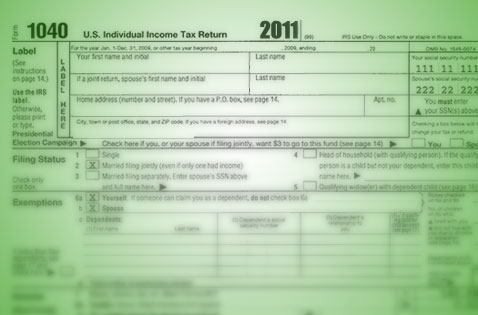In 2016, the average tax return was $2,860.
Most people would never consider a large tax return to be a con. It’s certainly better than having to pay the taxman a huge chunk of change, but there can be drawbacks for some people.
Making smart decisions with your money includes paying taxes strategically. The Salt Lake City accountants at Anderson Bradshaw PLLC specialize in tax preparation and planning. They point out to clients that in some situations it may be best to plan taxes so that you pay less throughout the year and receive a smaller tax return.
Below is a rundown of the pros and cons of getting a big tax refund. Keep these things in mind now so you can start planning next year’s taxes.

Pro: A Tax Return is Extra Cash
Everyone likes getting a tax return because it feels like you’re being handed free money from the government. People eagerly check their tax return status, waiting for the moment when their bank account grows larger. The truth is many people can use the extra cash. According to Bankrate, nearly six in 10 Americans don’t have enough savings to cover a $500 unexpected expense.
Con: You Keep Less of Your Monthly Paycheck
Sometimes deductions and smart itemization lead to a fat tax return. Other times it’s because people pay more taxes than necessary every month. Some taxpayers do this purposely by arranging to have a surplus amount taken out just in case their taxes are higher than expected. If you aren’t sure what your tax responsibility will be and you want to minimize the chance of owing money in April, this is a sound strategy.
For the half of American families that live paycheck to paycheck, paying more in taxes than you need to every month may not be the best financial decision. This is especially true if you are continuing to rack up credit card debt or have high-interest unsecured debt.
Re-evaulating how much you pay into taxes could reveal that you regularly pay more than needed. Adjusting the withholding is like getting an immediate pay raise since you take home more of your paycheck every pay period.
Pro: Paying More in Taxes Forces You to Save
Are you the type that likes to spend? One of the advantages of overpaying taxes every month is it forces some people to indirectly save their money. If you’re the type that benefits from having Uncle Sam hold on to your cash then waiting on a large tax return could be financially sound.
Con: Many People Don’t Save or Invest Their Tax Return
Let’s be honest. When people get a chunk of money from a tax return a percentage of that money goes to discretionary spending. This is the spending that’s not necessary and can put a budget in the red.
What people should do with the extra cash is pay down debt (starting with the highest interest rate) or invest it so you can grow your assets. In surveys like the one conducted by GOBankingRates many people say they plan to use their tax return to pay off debt or bulk up their savings. However, 32% of respondents didn’t have a game plan. A great way to make sure your tax return isn’t wasted is to request a direct deposit into a savings account.
Pro: A Tax Return Can Act Like an Interest Free Loan
Some people treat their tax return as if it’s an interest free loan. They use it to make a down payment or purchase an expensive item that would otherwise require borrowing. If you don’t need the extra money for an emergency fund or paying bills, this is a financially savvy use of the return money since you’ll save money by avoiding interest. It’s also a sound strategy you’re not the best at saving money for a big purchase.
Con: Paying Too Much is Like Giving the Government an Interest Free Loan
When you receive a refund it’s the government paying you back money that was overpaid. But up until that point the money sat in federal government bank accounts, not yours. Instead of giving the government an interest-free loan, you could save the extra money yourself and earn interest on it.